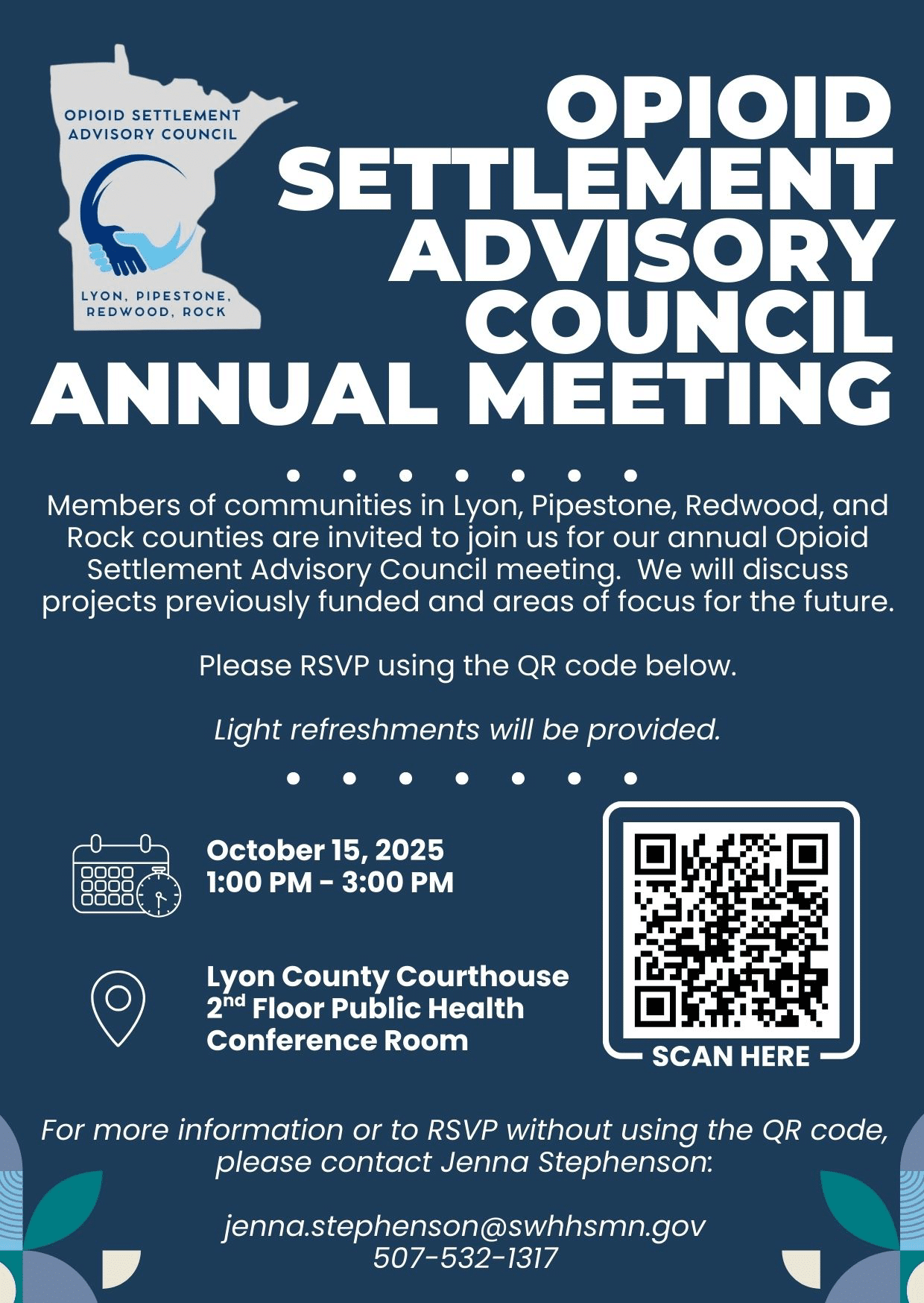
On August 20, 2021, the Minnesota Attorney General’s Office joined the historic $26 billion multi-state settlement agreements with pharmaceutical distributors McKesson, Cardinal Health, and AmerisourceBergen, and opioid manufacturer Johnson & Johnson. This settlement will bring more than $300 million to Minnesota counties and cities with an anticipated spending start date of August 1, 2022.
- For more detailed background on the multi-district litigation (MDL), visit the Minnesota Attorney General’s Office – Fighting the Opioid Epidemic
- Minnesota opioid related data can be found on Minnesota Department of Health’s opioid dashboard.The dashboard contains detailed information on overdose deaths, opioid-related hospital visits, the number of opioid prescriptions dispensed, the prevalence of substance use disorder, and more.
- According to the Minnesota Opioids State-Subdivision Memorandum of Agreement(MOA), the Public Health departments shall serve as the lead agency and Chief Strategist to identify, collaborate, and respond to local issues as Local Governments decide how to leverage and disburse Opioid Settlement Funds. In their role as Chief Strategist, public health departments will;
- Convene multi-sector meetings
- Lead efforts that build upon local efforts like Community Health Assessments and Community Health Improvement Plans
- Foster community focused and collaborative evidence-informed approaches that prevent and address addiction across the areas of public health, human services, and public safety.
- Consult with municipalities located within their county in the development of any Community Health Assessment
- Collaborate with law enforcement agencies in the county where appropriate.
- Johns Hopkins Bloomberg School of Public Health – endorsed by nearly 50 major organizations - created the Guiding Principles to ensure proper spending of opioid litigation funds;
- Principle 1- Spend the money to save lives.
- Principle 2- Use evidence to guide spending.
- Principle 3- Invest in youth prevention.
- Principle 4- Focus on racial equity.
- Principle 5- Develop a fair and transparent process for deciding where to spend the funding.
- Download Opioid Principles PDF
In 2021, a national settlement lasting over 18 years was established between several pharmaceutical companies and the United States government to address the damage caused by opioid use and prevent further harm. The funds generated from this settlement, along with national initiatives aimed at reforming pharmaceutical regulations, are designed to alleviate the impact on our communities and enhance the quality of life for all Americans.
The specific settlement amounts to Minnesota’s cities and counties can be found here: Opioid Settlement Payment Amounts. To view how statewide settlement funds have been utilized in previous years, check out the Drug Overdose Dashboard - MN Dept. of Health.
Below are the projects funded by dollars designated for Southwest Minnesota counties, as overseen by the Southwest Health and Human Services Community Health Board.



